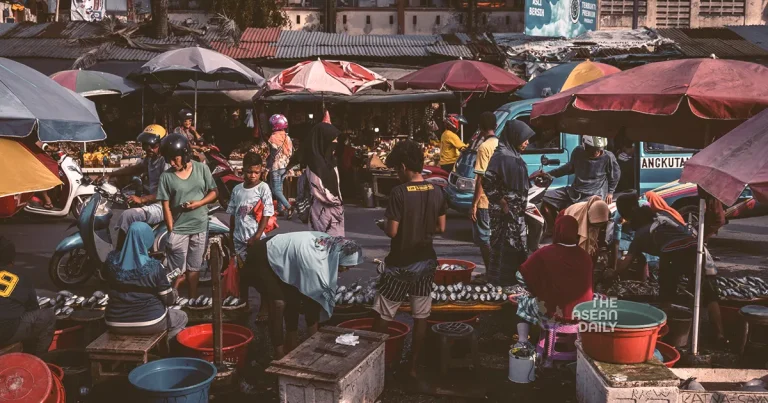15-12-2023 (JAKARTA) In the bustling neighborhoods of South Jakarta, small-scale home-based businesses are witnessing a surge in orders for election-related merchandise as Indonesia gears up for its February 2024 elections. With 18 political parties participating in what is considered the world’s largest single-day election, the demand for flags, banners, T-shirts, and other campaign materials has skyrocketed.
In one such workshop on the second floor of a South Jakarta house, workers diligently craft flags adorned with the name and logo of the NasDem Party. The bustling activity underscores the crucial role these small enterprises play in meeting the demand generated during the campaign season.
Sakun Nurwanto, a business owner managing a team of 20 employees, is working tirelessly to produce around 3,000 flags daily, ranging in size from 54 sq cm to a substantial 6 sq m. The challenges faced include ensuring accurate spelling of candidates’ names and tackling fraud issues where customers may place significant orders without payment.
As Indonesia prepares for its historic elections on February 14, approximately 204.4 million eligible voters will cast their ballots for the next president, vice-president, and legislators at national and regional levels. The significance of the elections is further highlighted by the sheer scale of campaign merchandise required.
Sakun Nurwanto’s business, established in 1999, has become a vital player in the production of election paraphernalia. While challenges such as fraud pose risks, the surge in demand during election seasons can be financially rewarding. The current value of the election merchandise business in Indonesia remains unquantified, but anecdotes from political figures reveal substantial expenditures on campaign materials.
The election-related merchandise industry extends beyond flags to include T-shirts, where businesses like Aji Ngajiman’s have experienced significant success. Aji, a business owner since 2005, has seen his apparel sales reach 100 billion rupiah during the 2014 and 2019 elections, with an all-time high order of two million T-shirts in 2014. Despite challenges like tough competition and customer price sensitivity, Aji is optimistic about achieving similar sales during the upcoming campaign season.
While some businesses flourish during the election season, others, like Wahyu Alamsyah’s shop offering party paraphernalia in Pasar Senen, have not experienced a significant boost in sales. Alamsyah attributes this to the short campaign period, which ends on February 10, and a shift towards social media campaigns by political parties, reducing spending on traditional campaign souvenirs.
Dr. Kunto Adi Wibowo, a political communications expert, acknowledges the impact of social media campaigns on the decline of certain campaign giveaways. However, he notes that legislative candidates are becoming more selective in their spending due to rising living costs, prioritizing items like T-shirts, veils, and staple foods.
As the election season unfolds, these small enterprises in Jakarta play a pivotal role in shaping the visual landscape of campaigns, contributing to the vibrancy and dynamism of Indonesia’s democratic process.




